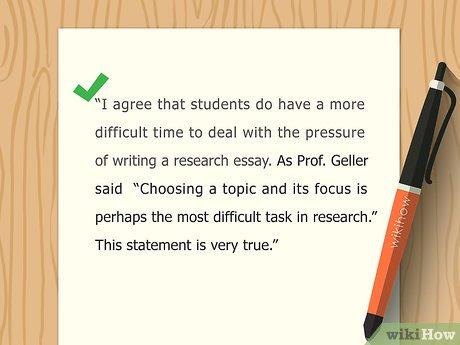Equatorial Guinea Battles France Over Seized Luxury Mansion: A Clash of Sovereignty and Corruption
In a dramatic escalation of tensions between Equatorial Guinea and France, the Central African nation is intensifying its legal battle to reclaim a multi-million dollar luxury mansion in Paris that French authorities seized as part of a broader investigation into corruption and money laundering. The property, once linked to the son of Equatorial Guinea’s long-time president, Teodoro Obiang Nguema Mbasogo, has become a focal point in an ongoing saga that pits allegations of organized crime against the backdrop of international diplomacy. As Equatorial Guinea seeks to assert its claims of sovereignty, the case shines a light on the intricate web of corruption that has plagued the country and the role of foreign governments in addressing or enabling such practices. With both nations poised for what could be a protracted legal battle, the outcome may have significant implications for international law, governance, and human rights within the region.
Equatorial Guinea’s Legal Battle with France Over Luxury Mansion Highlights Corruption Issues
The ongoing legal dispute between Equatorial Guinea and France over a lavish mansion in Paris underscores deep-seated issues of corruption that plague both nations. The property in question, reportedly worth millions, was seized by French authorities amid allegations of embezzlement and money laundering tied to President Teodoro Obiang’s son, Teodorin Obiang. The legal battle has unveiled a broader narrative of how illicit wealth secures luxury lifestyles for a select few, while millions in Equatorial Guinea live in poverty. This case raises crucial questions about accountability and transparency within political circles, especially as French officials are tasked with enforcing international anti-corruption laws.
Various stakeholders, including anti-corruption advocates and international watchdogs, argue that France’s actions reflect a commitment to tackling the flow of dirty money from Africa to Europe. However, critics maintain that the French government has historically turned a blind eye to similar situations involving influential elites. Key revelations from the case include:
- Transnational Corruption: Evidence suggests a direct link between political privilege and property seizing.
- Luxury Expenditures: Details emerged regarding extravagant purchases made with public funds.
- Legal Implications: The outcome of the case may set a significant precedent for future anti-corruption efforts.
Examining the Implications of Seized Assets on International Relations and Governance
The recent legal battle between Equatorial Guinea and France over a luxury mansion seized under allegations of money laundering and corruption brings to the forefront crucial discussions about the impact of asset seizures on international relations. On one hand, such actions are intended to uphold global standards of law and accountability, particularly against regimes accused of human rights abuses and corruption. However, they also risk exacerbating tensions between sovereign nations, as exemplified by Equatorial Guinea’s accusations against France of interfering with its governance. This situation underscores a pivotal question: how do asset confiscations, especially in cases involving high-profile political figures, reshape diplomatic ties?
Furthermore, the ramifications extend beyond immediate diplomatic relations, influencing broader strategic alliances and economic partnerships. For instance, countries may feel pressured to align their legal frameworks with international anti-corruption standards to avoid similar fates, while simultaneously questioning the motives behind such interventions. The fallout can lead to a paradoxical scenario where nations bolster their defenses against perceived imperialistic practices, thus creating a climate of mistrust. The implications of these actions can be illustrated in the following table:
| Aspect | Potential Impact |
|---|---|
| Diplomatic Relations | Increased tension between targeted and acting nations |
| International Reputation | Countries may be viewed as corrupt or unjust |
| Legal Frameworks | Push towards compliance with international law |
| Public Perception | Heightened scrutiny of governmental actions |
Recommendations for Strengthening Accountability in Global Property Seizures and Anti-Corruption Efforts
Enhancing accountability in global property seizures and anti-corruption initiatives necessitates a multifaceted approach. Governments and international organizations should prioritize the implementation of standardized frameworks that ensure transparency in asset recovery processes. Measures to consider include:
- Establishing a global registry of seized assets to track ownership and usage.
- Creating independent oversight bodies to monitor the processes involved in property seizures and ensure fair treatment.
- Encouraging intergovernmental cooperation for seamless information sharing regarding suspected corrupt practices and unlawful property acquisitions.
Moreover, enhanced legal frameworks are essential for combatting corruption more effectively. Legislation should be adapted to facilitate the swift prosecution of cases involving high-profile individuals engaged in illicit property acquisitions. Important actions include:
- Developing clear definitions related to corruption and organized crime standards applicable across borders.
- Implementing stringent penalties for individuals and entities found guilty of corruption-related offenses.
- Providing training for law enforcement agencies on property seizures in line with international anti-corruption treaties.
| Measure | Potential Impact |
|---|---|
| Global Registry of Seized Assets | Increased transparency and tracking of illicitly acquired properties |
| Independent Oversight Bodies | Enhanced accountability and public trust |
| Intergovernmental Cooperation | Smoother information exchange to combat global corruption |
The Conclusion
In conclusion, the ongoing dispute between Equatorial Guinea and France over the seizure of a luxurious mansion underscores the complexities of international law and diplomatic relations. The glamorous property, linked to President Teodoro Obiang’s son, Teodoro Nguema Obiang Mangue, has become a focal point in a broader narrative of corruption and organized crime. As Equatorial Guinea seeks to reclaim the mansion, the case reveals underlying tensions surrounding asset recovery, sovereignty, and the fight against illicit finance. With the potential for repercussions that extend beyond mere property disputes, this situation highlights the urgent need for transparency and accountability in governance, both within Equatorial Guinea and on the global stage. As developments unfold, the struggle for justice in this high-stakes battle will be closely watched by both nations and the international community.

